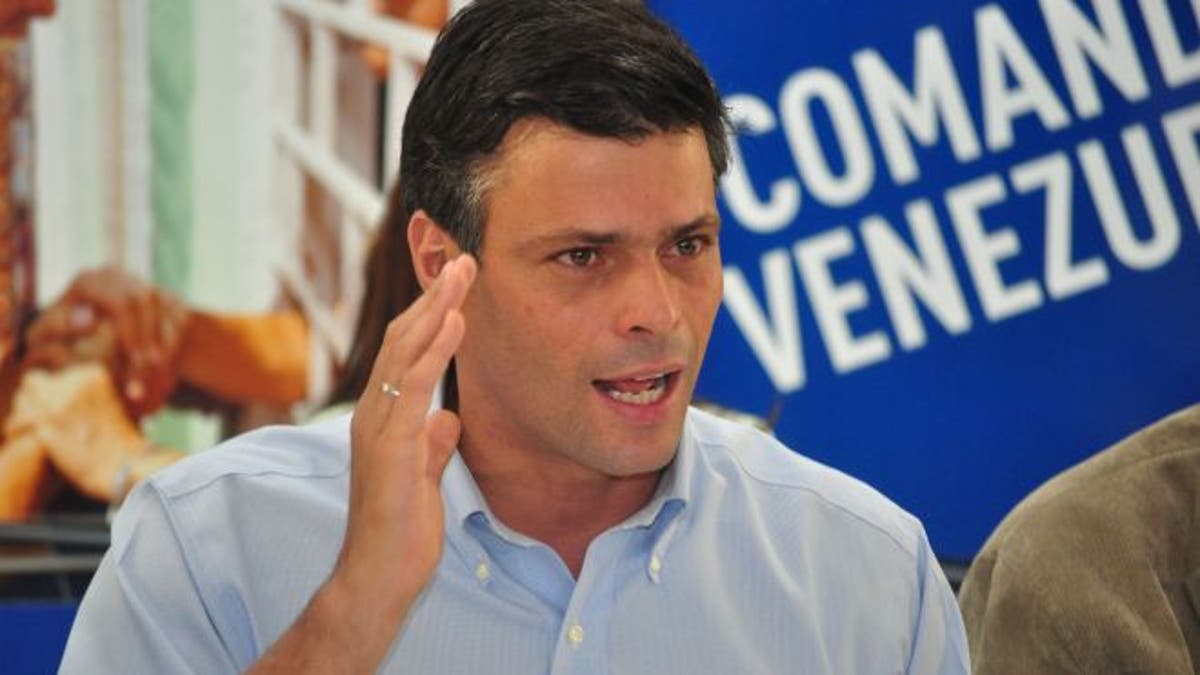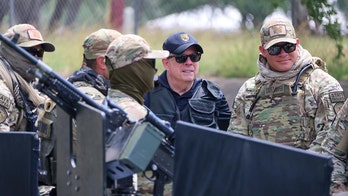
Former Venezuelan presidential contender Leopoldo López (leopoldolopez.com)
Caracas, Venezuela – The call by a jailed Venezuelan politician for a large-scale demonstration against President Nicólas Maduro's government this coming Saturday shows a crippling rift in the country’s opposition movement.
Leopoldo López, the founder and leader of the Voluntad Popular (“Will of the People”) party who was arrested in February 2014 on conspiracy charges, called for a Saturday protest from his cell at the Ramo Verde prison.
The Democratic Unity Roundtable, or MUD in its Spanish acronym, is a 29-party coalition – Voluntad Popular (VP) is one of them – that is fielding a joint slate of candidates for parliamentary elections which are to be held later this year, although the government hasn’t set a date for them.
But on Tuesday night, the coalition issued a statement saying that it will not join the Saturday protest.
"The best decisions are those that are arrived at together, because unity has no substitute, because no organization and no leader is more important than a people who are united and mobilized,” the release explained.
Some members of the coalition criticized Lopez's decision because it was taken without being consulted.
The decision not to participate was taken, the statement said, "after intense consultation with the diverse organizations that make up this alliance – many of whom expressed misgivings about the form and object of the protest, objections that surely could have been resolved without the pressure of a date already set in a unilateral manner by the authors of the initiative."
Freddy Guevara, VP’s national coordinator, says the party is pressing ahead with Saturday’s rally. It is part of a strategy against Maduro’s regime that “began with the hunger strike and will use a variety of non-violent protest means,” he told Fox News Latino.
“We don’t think we are dividing the opposition. [MUD] may not support Saturday’s rally, but it backs the aims of the rally: The immediate freedom of all political prisoners, the end of censorship and repression and the setting of a date for congressional elections date,” Guevara said.
Besides the rally, López and Daniel Ceballos – the former mayor of San Cristóbal and another jailed VP leader – have been on a hunger strike since Friday. On Tuesday, two young VP politicians behind bars, Alexander Tirado and Raúl Emilio Baduel, joined their hunger strike.
After the roundtable announced its decision, the phrase “La Mud” (for its name in Spanish) turned into a trending topic on Twitter. Many questioned why part of the opposition would refuse to protest against the government on the basis of simply not having been consulted.
“This is a problems that affects the opposition as a whole because it makes it seem disorganized and like it has communication problems,” Piero Trepiccione, a local political analyst and member of the Venezuelan social justice NGO, Centro Gumilla, told FNL. “This step back to the time when individual strategies were taken [by opposition parties] is disturbing if you consider that by the end of this year we are going to have elections. Polls show that people are unhappy with Maduro’s government, but the opposition is not taking advantage of it.”
Small opposition parties like Copei, Vente Venezuela (“Come, Venezuela”), La Causa R (“The Radical Cause”) and Bandera Roja (“Red Flag”) have joined in López’s call for the rally, but bigger groups like Primero Justicia (“Justice First”) and Acción Democrática (“Democratic Action”) oppose it.
Since last year, two factions have emerged inside MUD. The one known as the radicals, led by VP, favors public protests to try to discredit the Maduro regime. The other would prefer to focus on winning the upcoming elections.
Guevara admitted that VP can’t predict how many people will attend the rally on Saturday, and the most recent protests haven’t drawn as many people as those in the past.
José Antonio Gil Yepes, director of the local polling firm Datanálisis, told FNL that, despite the strong anti-Maduro sentiment in a large segment of the population, the opposition isn’t harnessing much of it.
“There are too many organizations, and [MUD is] not an effective platform,” Yepes said. “On top of that, there is fear because of last year’s attacks on opposition demonstrators.”
In 2014, more than 40 people were killed in public manifestations and hundreds were arrested.
But the response to MUD’s lack of support for the rally was negative enough that at least one centrist opposition leader – the two-time presidential candidate Henrique Capriles Radonski, a co-founder of the Justice First party – announced Wednesday morning on Twitter that he would attend Saturday’s rally.
"In support of freedom for our companions who are political prisoners, I'm going to participate without seeking to divide," he tweeted.
While the opposition hems and haws about whether or not to take to the streets, the government is trying to take advantage.
Monday night, a show on state-run VTV network aired an audio clip that purported to be a conversation between the jailed VP leaders, López and Ceballos, plotting in jail how to destabilize the country by staging Saturday’s protest.
“This thing will hit the [national board of elections] hard,” López is supposed to have told Ceballos about the Saturday protest. “It has got to hit hard and go viral.”
The lawyer for the two men, Juan Carlos Gutiérrez, told the PanAm Post that the recording is a fake spliced together from a number of different conversations.
“It contains cut-off phrases,” he said, “and you can absolutely hear cuts where they’ve edited it…. It’s a very poorly made and structured montage.”
He added, “We understand that the primary strategy of the government is to discredit and delegitimize the protest and the hunger strike, but this is so badly done and so laughable that it will have no effect.”
Like us on Facebook




